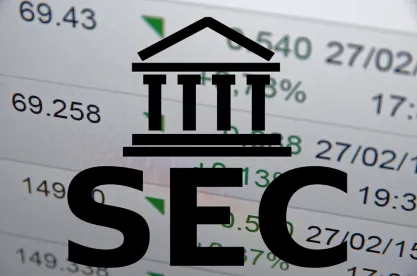Yesterday, the five SEC commissioners voted 3-2, along party lines, to approve the Private Fund Adviser Rules. The final Rules scale back from what was initially proposed 18 months ago, in ways that are likely to be a relief to many private fund advisers. (For a summary of the initial proposal, please see our previous Alert.) Even in their current form, however, the Rules still impose many new obligations and introduce new prohibitions that are likely to significantly alter business practices, and impose new administrative burdens and costs, across many registered and exempt private fund advisers. All private fund advisers should therefore review their practices in light of the new Rules in order to assess whether and how their practices and documentation will need to change before the Rules’ compliance dates.
A summary of the Rules along with preliminary highlights appears below (to be followed by a more detailed summary in a forthcoming publication). Readers may also wish to refer to the SEC’s Fact Sheet regarding the final Rules, as well as the Adopting Release.
| Rule | Which Advisers Are Covered? | Transition Period | Summary of Final Rule | Certain Changes from the Proposal |
| Quarterly Statement Rule | RIAs Only | 18 months |
Requires RIAs to provide quarterly statements to private fund investors with detailed information on: · private fund fees and expenses; · compensation received by the RIA and its affiliates and personnel from the fund and from portfolio investments, and any related fee offsets; and · standardized fund performance. Statements must be delivered within 45 days (Q1-Q3) or 90 days (Q4) of quarter-end. For funds of funds, the deadlines are 75 days (Q1-Q3) and 120 days (Q4). |
Expenses to be reported now include expenses allocated to the fund, in addition to expenses paid by the fund. Statement no longer needs to list the fund’s ownership percentage of any portfolio investment. Illiquid funds must now report investment performance with and without (as opposed to just without) the effect of fund-level subscription facilities. Liquid funds are now not required to report investment returns since inception if inception is more than 10 years ago. Advisers to Funds of Funds will have additional time to distribute quarterly reports. Timing of reporting now keyed off of the fund’s fiscal year, not calendar year. |
| Private Fund Audit Rule | RIAs Only | 18 months | RIAs must ensure that each fund undergoes an annual financial statement audit. |
Audit must now adhere to the same standards as the Custody Rule’s audit requirements. If adviser is not in a control relationship with the fund (e.g., because it is an unaffiliated sub‑adviser to the fund), the adviser must now maintain records documenting its attempts to undergo an annual audit. Auditors will not be required to notify the SEC in connection with issues arising under audits. |
| Adviser-Led Secondaries Rule | RIAs Only |
12 months for “larger” private fund advisers ($1.5BN or more in private fund AUM) 18 months for “smaller” private fund advisers (less than $1.5BN in private fund AUM) |
RIAs causing a fund to undergo an adviser-led secondaries transaction must (i) obtain a fairness opinion or a valuation opinion and (ii) disclose any material business relationships the adviser has, or has had within the prior two years, with the opinion provider. |
Advisers will have the option to obtain a fairness opinion or a valuation opinion. Opinion and summary of material business relationships must now be delivered prior to the due date of the investors’ election form (instead of prior to closing). Definition of “adviser-led secondary transaction” now revised to exclude tender offers. |
| Compliance Rule Amendments | RIAs Only | 60 days | Amends the existing Compliance Rule to require all RIAs, including those that do not advise private funds, to document in writing the required annual review of their compliance policies and procedures. | No changes. |
| Restricted Activities Rule | All Advisers, Whether Registered or Not |
12 months for “larger” private fund advisers ($1.5BN or more in private fund AUM) 18 months for “smaller” private fund advisers (less than $1.5BN in private fund AUM) |
Restricts all private fund advisers from the following activities unless, in certain cases, disclosed to or, in other cases, disclosed to and consented by, the fund investors. Disclosure is required before the fact in some cases, and after the fact in others. “Consent” means approval by a majority in interest of fund investors that are not related persons of the adviser. The Adopting Release specifies that LPAC approval is not sufficient. Permitted With Disclosure: · Causing fund to bear regulatory or compliance fees/expenses (must be disclosed after the fact, quarterly, which can be done through the Quarterly Reports). · Reducing GP clawback for taxes (pre-tax and post-tax clawback amounts must be disclosed after the fact). · Non-pro rata allocations of investment-related expenses across different funds investing in the same investment (fee/expense amounts must be disclosed before the fact, with accompanying explanation as to why the fund’s allocation is fair and equitable). Permitted With Disclosure And Consent: · Causing a fund to bear fees/expenses relating to government or regulatory investigations (other than in cases where the adviser is sanctioned for violating the Advisers Act or the Rules thereunder). · Adviser borrowing from a fund. · Grandfathering applies (i.e., no need for consent) for all “legacy” agreements in-place as of the Compliance Date (see below). |
Initially proposed as outright prohibitions, these activities are now permitted if disclosed to, or if disclosed to and consented by, the fund investors (as applicable). The SEC also added the grandfathering provision described herein. |
| Preferential Treatment Rule | All Advisers, Whether Registered or Not |
12 months for “larger” private fund advisers ($1.5BN or more in private fund AUM) 18 months for “smaller” private fund advisers (less than $1.5BN in private fund AUM) |
Prohibits all advisers from providing preferential redemption or information rights that would have a material negative effect on other investors in the fund or in other funds with similar portfolios, except for (i) preferential redemption rights that are required by applicable law or (ii) preferential redemption rights or information rights that are offered to all other investors in the fund (and in all funds with similar portfolios). Grandfathering applies for all “legacy” preferential redemption and information rights agreements in-place as of the Compliance Date (see below). Requires all advisers to disclose other preferential material economic terms to all investors in the fund (and in all funds with similar portfolios). |
Initially proposed as outright prohibitions, preferential redemption and information rights are now permitted if required by applicable law (redemption rights only) or offered to all other investors (redemption and information rights). The SEC also added the grandfathering provision described herein. Notice of other preferential terms now limited to material economic terms. Timing of notice delivery has also been changed: (i) for illiquid funds, delivery after the end of fund raising; and (ii) for liquid funds, delivery after the relevant investor has been admitted to the fund. |
| Carve-Out For Advisers To Securitized Asset Funds | As adopted, none of the Rules (other than the amended Compliance Rule) will apply to any advisers to the extent that they advise securitized asset funds (i.e., similarly to the definition appearing in Form PF and Form ADV, securitization vehicles or vehicles that issue asset-backed securities and whose investors are primarily debt holders). This carve-out would apply whether the adviser is registered or exempt. However, the carve-out would not extend to an adviser’s activities in advising other types of funds that are not securitized asset funds, in which case the Rules would apply to any non-securitized asset fund activities. In addition, such advisers (if RIAs) would remain subject to the amended Compliance Rule. |
| Carve-Out For “Offshore Advisers” Advising Non-U.S. Domiciled Funds | Confirming and clarifying a carve-out initially proposed in the Proposing Release, the SEC notes that none of the Rules (other than the amended Compliance Rule) will apply to advisers that have their principal office and place of business outside the United States (“offshore advisers”) to the extent that they advise non-U.S. domiciled funds. This carve-out would apply whether the adviser is registered or exempt (e.g., as a non-U.S. ERA, or by relying on the foreign private adviser exemption). However, the carve-out would not extend to an offshore adviser’s activities in advising any U.S. domiciled funds (e.g., a Delaware limited partnership), in which case the Rules would apply to any U.S. domiciled fund activities. In addition, offshore advisers (if RIAs) would remain subject to the amended Compliance Rule. |
| Grandfathering for Certain “Legacy” Agreements | The Restricted Activities Rule and the Preferential Treatment Rule provide for grandfathering with respect to certain of the Rules’ provisions for any “legacy” contractual agreements that govern the fund (e.g., fund limited partnership agreement, subscription agreements and side letters) or that govern any borrowing, loan, or extension of credit entered into by a fund, if the agreements were entered into prior to the Compliance Date. Specifically:
|
| Proposed Provisions That Were Not Adopted |
Prohibition on Limiting or Eliminating Liability: The SEC had initially proposed to prohibit an adviser to a private fund, directly or indirectly, from seeking reimbursement, indemnification, exculpation, or limitation of its liability by the private fund or its investors for a breach of fiduciary duty, willful misfeasance, bad faith, negligence, or recklessness in providing services to the private fund. Instead, the SEC took the opportunity in the Adopting Release to “reaffirm and clarify” its views on how an adviser’s fiduciary duty applies to its private fund clients and how the antifraud provisions apply to the adviser’s dealings with clients and fund investors. The SEC’s statements largely repeat its earlier guidance from its 2019 Interpretive Release on investment adviser fiduciary duties, and highlight certain related observations by the staff of the Examination Division as well as a recent instance in which the SEC applied those principles in a settled enforcement action. However, in closing on the topic of waivers of liability in fund governing agreements, the SEC noted that “to the extent that a waiver clause is unclear as to whether it applies to the Federal fiduciary duty, State fiduciary duties, or both, we will interpret the clause as waiving the Federal fiduciary duty”, and therefore as a breach of the Advisers Act. Prohibition on Fees for Services Not Performed: The SEC had initially proposed to prohibit an adviser from charging fees to a fund or to a portfolio investment without providing corresponding services (e.g., prepaid fund management fees where advisory services are performed for only part of the relevant period or accelerated monitoring fees payable to a private equity fund adviser). In the Adopting Release, the SEC noted that it had determined that it was unnecessary to include such a prohibition by Rule “because such activity already is inconsistent with the adviser’s fiduciary duty”. The SEC is therefore likely to treat this as a de facto prohibited practice even absent a specific Rule. |
| Transition Periods | The transition periods noted above will be measured from the date of the Rules’ publication in the Federal Register. While there is no set timeframe in which an Adopting Release’s publication must occur, it has historically ranged from several weeks to 30 days or more from the date of adoption. |





 />i
/>i

